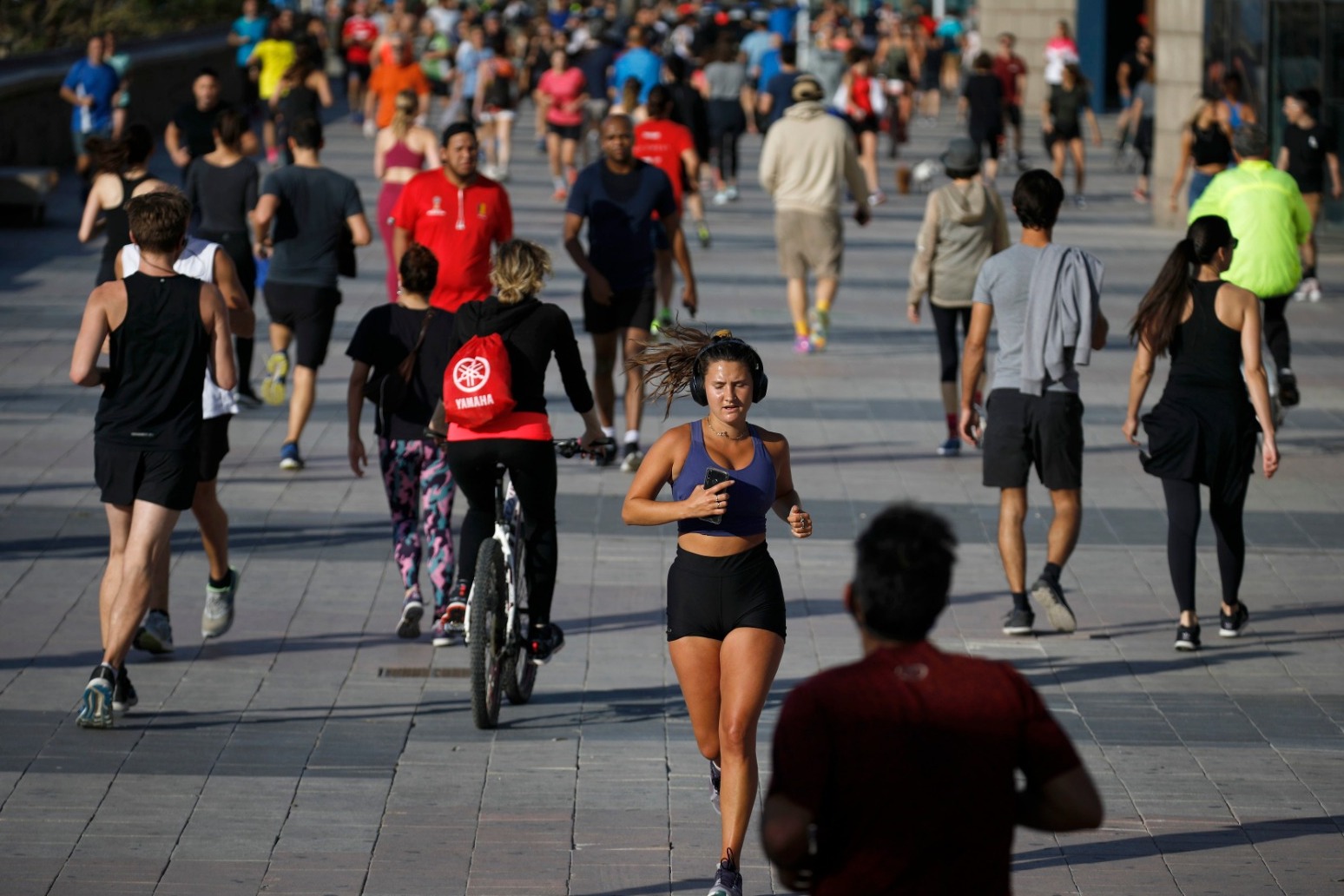
Spanish joggers taste fresh air as lockdown eases
Spaniards are exercising on the streets for the first time after seven weeks of coronavirus lockdown.
Spain, one of the worst-hit countries in the world with 24,543 deaths and more than 213,000 cases of Covid-19, is rolling back restrictions that helped bring the outbreak under control and save hospitals from collapse.
Russia and Pakistan, however, have reported their biggest one-day spikes in new cases in a sign that the pandemic is far from over.
A huge field hospital the military helped to set up at a Madrid convention centre was closed on Friday, and the Spanish capital has already closed a makeshift mortuary the army had established at an ice rink in a shopping centre.
Since Spain's lockdown started on March 14, only adults have been able to leave home, for shopping for food, medicine and other essential goods, and to walk dogs close to home. The lockdown is credited with succeeding in reducing daily increases of infections from more than 20% to less than 1%.
As restrictions were relaxed on Saturday, people ran, walked, or rode bicycles under a sunny sky in Barcelona, where many flocked to the maritime promenade to get as close as possible to the still-off-limits beach.
The government has set up time slots for age groups and activities, and social-distancing measures are still in place.
Spain has detailed a complex roll-back plan that will vary by province. Those with the fewest cases and with health care resources in place to handle a rebound of the virus will be the first to enjoy a further loosening of the measures.
Meanwhile, concern is growing in Moscow about the possibility that hospitals might become overwhelmed after Russia recorded a new one-day high of 9,633 new cases, a 20% increase over Friday's count which, itself, was a new daily record.
Russia has now reported 124,054 total cases, with 15,013 recoveries and 1,222 deaths. True numbers are believed to be higher because not everyone is tested and Russian tests are reported to be only 70% to 80% accurate.
Moscow's mayor said this week that officials are considering establishing temporary hospitals at sports complexes and shopping centres to deal with the influx of patients. Infection cases have reached the highest levels of government, with both the prime minister and the construction minister reporting they had contracted the virus.
The virus has killed more than 238,000 people worldwide, including more than 65,000 in the United States and more than 20,000 each in Italy, the UK, France and Spain, according to a count kept by Johns Hopkins University. Health experts warn a second wave of infections could hit unless testing is expanded dramatically.
Pakistan announced 1,297 new cases on Saturday, raising the total in the country of 220 million people to 18,114.
The increase coincides with increased testing. The government said more than 9,000 tests were conducted in the previous 24 hours. Prime Minister Imran Khan has set a goal of 20,000 per day.
Photos in newspapers showed large numbers of the faithful at Pakistani mosques and only some following social distancing rules. Mr Khan's government said it might ease controls, but doctors have pleaded for stricter lockdowns, warning an explosion of infections would overwhelm hospitals that have only 3,000 intensive care beds nationwide.
Published: by Radio NewsHub